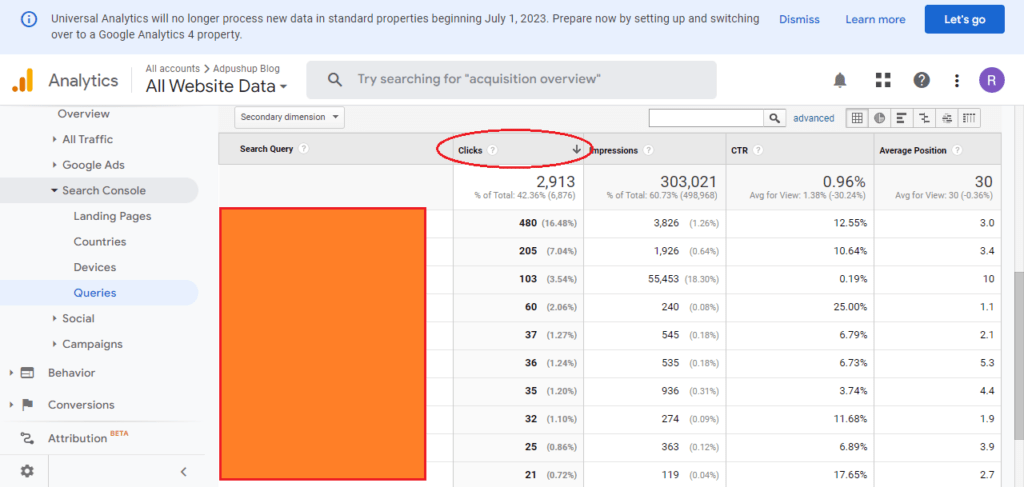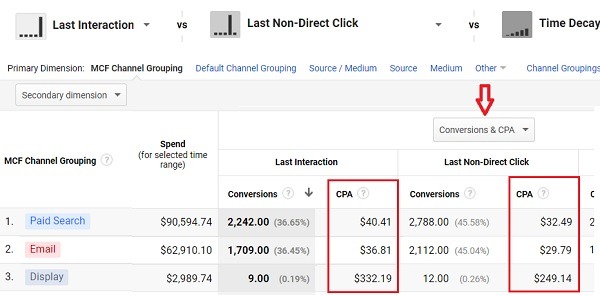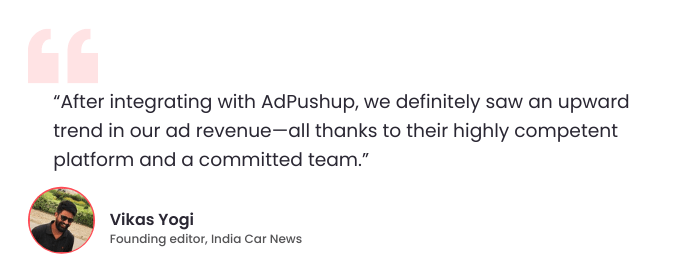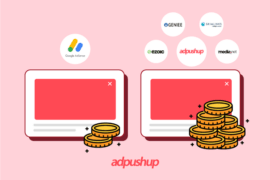The goal of this article is to explore all the differences between CPC and CPA (Cost-Per-Click and Cost-Per-Action). Both pricing models are the key to building an effective marketing funnel strategy. Let’s know in detail about CPC vs CPA.
In the market of digital marketing in today’s world, advertising plays a rather pivotal role, and this is proved by the incredible success of the advertising channels. CPC and CPA are two such terms that are extremely important to know about if you are looking forward to staying in this field in the long run.
According to Market Analysis and Insights, the type of affiliate marketing platforms include:
- CPS
- CPA
- CPC
- Others
Also, the Global Affiliate Marketing Platform market size was valued at USD 15773.09 million in 2021 and is expected to expand at a CAGR of 9.89% during the forecast period, reaching USD 27780.09 million by 2027.
This is true from the perspective of both advertisers as well as publishers, as both these sides grow their revenues from text and banner ads.
So, let’s discuss the following points in this article to clarify what they are and how they are different. So, let’s start with CPC vs CPA.
- What is the Definition of CPC?
- What is the Definition of CPA?
- How is CPC Different from CPA?
- CPC vs CPA – Which One is More important?
- How is Optimizing for CPC different from Optimizing for CPA?
Also Read: Understanding CPC vs CPM for Ad Publishers
I. What Does CPC (Cost-Per-Click) Stand for?

As defined by Google, CPC or Cost-Per-Click is the actual final amount that you are charged for one click. In some cases, you also pay lesser than that, where CPC becomes the highest bid you make instead of the final price.
CPC Formula:
CPC (Cost Per Click) = Total Amount Spent / Total Measured Clicks
Here, the advertiser is supposed to pay this cost to the publisher for every single click that a particular ad gets. CPC is sometimes also referred to as PPC or Pay-Per-Click. CPC determines the price of the ads being shown to users on various platforms like Search engines, social media, Google Adwords, as well as other publishers. CPC often turns out to be a very important factor in determining strategies for bidding so as to maximize clicks depending on target keywords and allocated budget.
CPC is used as a factor in the calculation of total ad spend for a variety of ads, including the following:
- Shopping Ads
- Text Ads
- Video Ads
- Image Ads
- Facebook Ads
- Instagram Ads
- LinkedIn Ads
- Twitter Promoted Tweets etc.
II. What Does CPA (Cost-Per-Action)Stand for?

In digital marketing, CPA stands for Cost-Per-Action or Cost-Per Acquisition and is actually a conversion rate. Cost-Per-Acquisition refers to the price a company is liable to pay for any advertisement that leads to a sale.
CPA Formula:
CPA (Cost Per Acquisition) = Total Amount / Total Attributed Conversions
In the same way, Cost-Per-Action refers to the price the company is liable to pay for an advertisement if it leads to a positive action like downloading an e-book or maybe signing up for a newsletter, etc. In both categories, the company only pays for the ads if there is a positive response to them, i.e. sales or conversion.
CPA is mostly used when companies undertake the function of affiliate marketing on external websites, social media, or blogs. So while going for a CPA Agreement, both the advertising publisher as well as the company need to agree on the amount to be paid for each action or conversion completed.
However, these agreements put quite a lot of pressure on the publishers as then their ability to attract customers and push them towards action is put to the test.
III. How is CPC Different from CPA? CPC vs CPA:
CPC is essentially a metric for advertising used for measuring the price of a generation of a single click on a particular ad. For calculating CPC, all you have to do is consider the total amount of dollars you’ve spent on an ad campaign. Then just divide it by the aggregate number of ad clicks generated. And voila, that is your CPC for a particular campaign.
CPA, on the other hand, is an advertising metric for measuring the price of generating an acquisition of a customer via an advertising campaign. Now for calculating CPA, the total amount spent for running ads is divided by the aggregate of conversions achieved by your campaign.
Also Read: Best PPC Ad Networks of 2023 (Top 15)

CPC vs CPA – Which is More important?
When it comes to digital marketers, it makes sense to follow both these metrics rather closely across the entire process of campaign management. In fact, CPA has a direct relation to the success of any campaign.
If you happen to have collected campaign data enough for the calculation of CPA, you can compare this to the customer lifelong value estimates to ensure that your campaign is actually making profits and growing your revenue.
If, however, the CPA is very high, the campaign will be bound to bleed and lose money even if the number of conversions is quite high.
What are clicks? They are basically interactions with users that make them reach your landing page so that you get better options for turning them into conversions. CPC tracking will give you information regarding how much traffic you are generating and whether the cost is also low so that you can get your much-desired profitable PPC advertising campaign.
Read More: PPC Advertising: A Complete Guide
How is Optimizing for CPC Different from Optimizing for CPA?
How does it affect you if either CPC or CPA is very high? How would you handle the situation?
If it occurs to you that you are actually spending a great deal of money for the generation of individual clicks, there are certain things that you can do. The first thing that needs to be done here is the optimization of your ad relevance so that your quality score can be increased as far as possible. This will also help you win the auctions of keywords in greater numbers but at lower costs.
Also, try to bid lesser amounts on various keywords, thereby optimizing the ads for CTR so that you can get more clicks at lesser costs.
If you think your CTA is very high, running a profitable campaign will be extremely difficult. There are a number of tools like Hotjar, Instapage, or Unbounce with which you can get your CPA improved via the optimization of your landing pages.
To Summarize
In a nutshell, the CPC, as a metric, is used to quantify the mean cost of ad clicks in a PPC-based campaign, whereas the CPA is used to quantify the cost of goal conversions in such a campaign. If you are a marketer, you will gradually learn to use these metrics to your benefit and optimize your campaigns by modifying the landing pages, ad elements, or strategy for keyword bidding.
We hope that this blog post has helped answer your questions and provided you with the knowledge you need about CPC vs CPA pricing models.
AdPushup makes your earnings big on ads and effortless. For more details, click here.
FAQ – CPC vs CPA
CPC stands for “Cost Per Click”, and it is a pricing model used in online advertising where the advertiser pays a fee each time a user clicks on one of their ads.
CPA stands for “Cost Per Action”, and it is a pricing model used in online advertising where the advertiser pays a commission to the publisher (website owner) for each specific action taken by a user (such as a sale or lead).
CPA is focused on specific actions taken by users, while CPC is based on the number of clicks on an ad. CPA may result in a higher return on investment for the advertiser if the desired action is completed, but it also carries a higher level of risk. CPC is a more predictable pricing model for the advertiser, but it does not guarantee a specific outcome.
CPA can be a good option for advertisers who are looking to increase conversions and sales. Because the advertiser only pays when a desired action is taken, it can be a cost-effective way to drive results. Additionally, CPA can be a good option for advertisers who are just starting out and want to test the effectiveness of their ad campaigns.
CPC is a predictable pricing model for the advertiser, as they know exactly how much they will pay for each click on their ad. This can make budgeting and forecasting easier. Additionally, CPC can be a good option for advertisers who want to increase their visibility and drive more traffic to their website but are not as focused on conversions.
The choice between CPA and CPC will depend on the specific goals and needs of a small business. If the business is looking to drive conversions and sales, CPA may be the better option. If the business is focused on increasing visibility and driving more traffic to its website, CPC may be the better choice. It’s also important for small businesses to consider the overall cost and return on investment when selecting a pricing model.

Shubham is a digital marketer with rich experience working in the advertisement technology industry. He has vast experience in the programmatic industry, driving business strategy and scaling functions including but not limited to growth and marketing, Operations, process optimization, and Sales.








